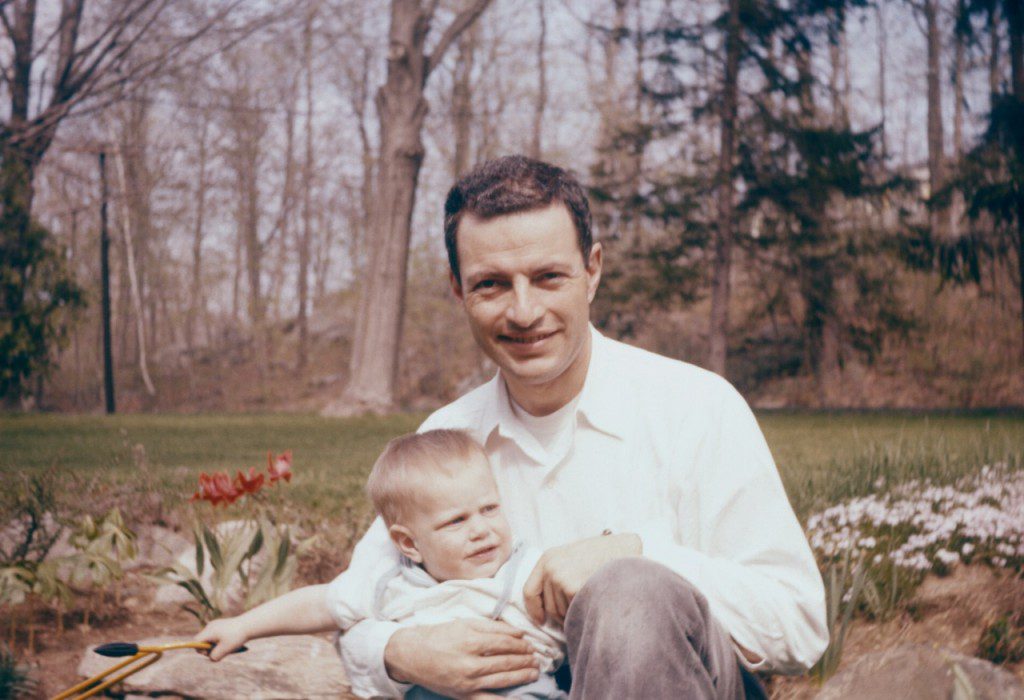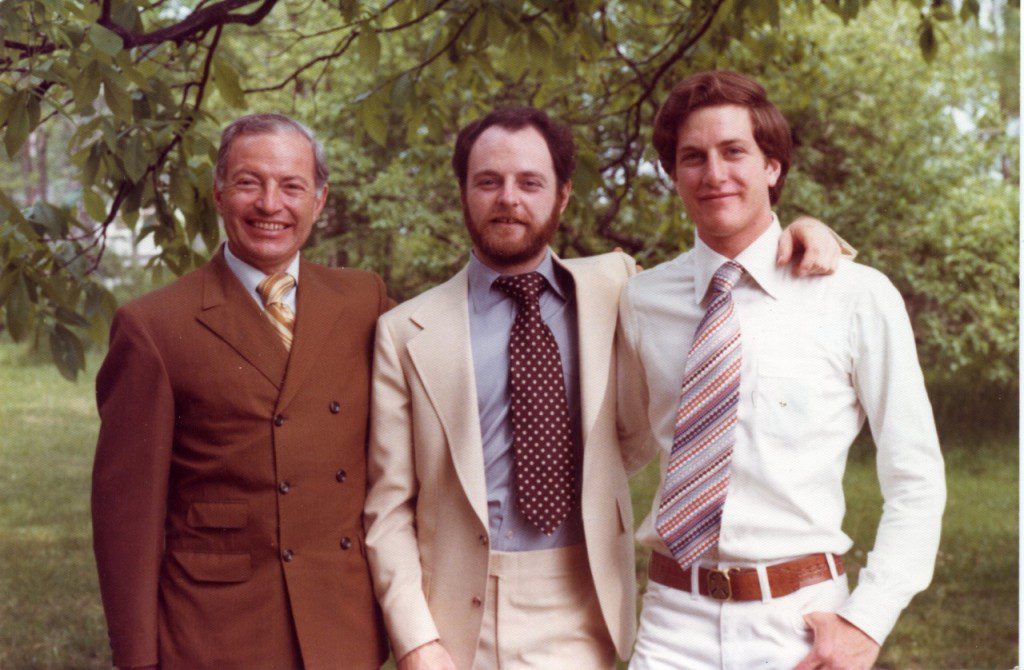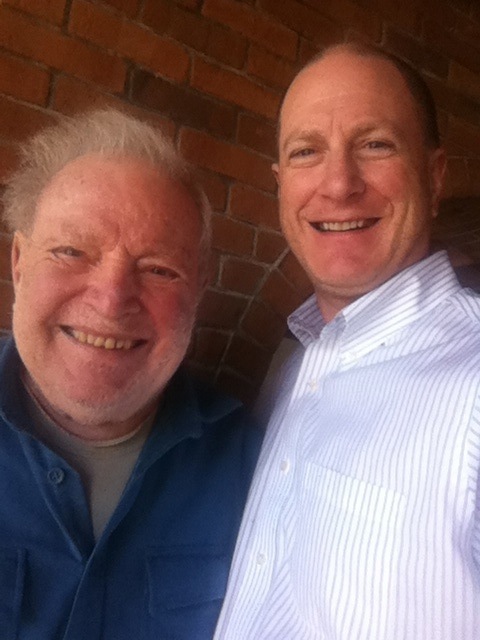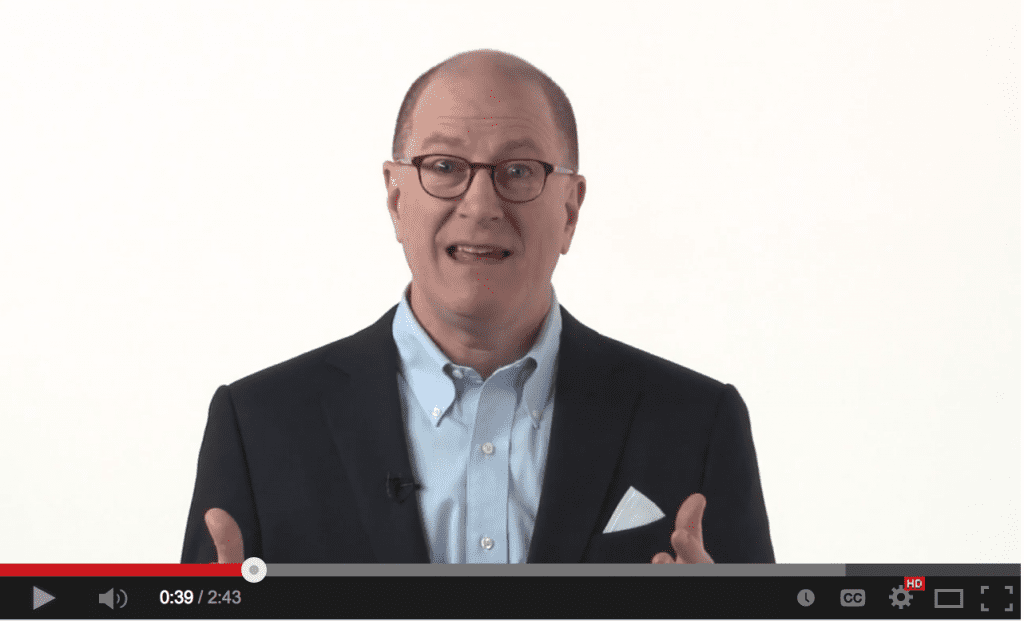
The Final and Most Important Step in any Relationship
In December, my father went to bed and did not get back out. He was 96—about to turn 97. He was in fairly good health and of sound mind. No, better than that: His mind was still razor sharp. He was a decorated WWII combat physician and a noted pioneer in 20th century psychiatry, his medical specialty.
What happened? I think it was a conscious decision on his part. And, partly, sheer weariness with pushing his 96-year old body around.
Me and my father in 1952.
When I would call him up and ask how he was doing, he’d often reply, “Compared to the alternative, quite well.” He rarely complained. He said he never expected to live that long, and that living to be 90 was overrated. I’m not sure exactly what he meant—he was always pretty healthy and mobile, a rarity for someone that old. He was still reading a couple of books at a time, for hours each day. But as the years rolled by I noticed his energy and motivation were flagging.
He had always been highly supportive of me and of my career. When I made partner in my old firm, at the age of 32, he congratulated me and said, in characteristic understatement, “The exercise of professional excellence is very rewarding, isn’t it?” I still remember that conversation—we were sitting on the chairlift together at the Dartmouth Skiway in Lyme, New Hampshire. He was 71 and still an avid skier.
At my college graduation in 1976 (left to right: My dad, my brother Michael, and me)
When our children hit their teenage years, and we had some derailments, he always insisted we were doing a great job as parents. He calmly gave me advice, and never, ever was judgmental about what was going on (his psychiatric specialty was adolescents and children!). I knew I could always call him and get his wise counsel. I would never hear, “I told you so” or “Don’t you know better?”
Oh, he had his faults. Plenty of them. Do we idealize our fathers? For sure. Is that wrong? Maybe not.
When I realized he was serious about staying in bed, and had pretty much stopped eating, I had to confront the fact that this was the end. Yes–how lucky to have a parent live such a long, healthy life. But ironically, he had become such a fixture in my existence that the idea of him being taken away was overwhelming. He began to fade. His strong voice weakened each day.
My dad was from the traditionalist generation. Parents in those days didn’t tell their kids every day how special they were or how much they loved them. At least, mine didn’t. And I was never good at saying those things to people either. But I woke up one morning and I realized there was something I had to do, and it was right in front of me.
Jerry Panas and I had put a chapter in our new book—then a month away from publication—about the importance of telling the people in your life how much they meant to you. How they had an impact on your life. We called it Law Thirteen: “Don’t wait to let someone know how much they mean to you.” Jerry mainly wrote that chapter. I believed in its message, but it was still a kind of intellectual concept for me.
I was in New York at the time, and could tell that time was nearly up. I called him. We chatted briefly, but I knew he didn’t have the energy to talk for long. “Dad, there’s something I want to tell you,” I said.
“What is it?” he asked, his voice a shadow of what it used to be.
“I want you to know how much you’ve meant to me. How important your support has been.”
“I’m glad,” he simply said.
This is the oldest relationship in my life, I was thinking to myself. It’s run for 58 years.
“In my toughest moments, you were always there to give me wise advice. You’ve been a great dad.”
“Well, I’m glad I did something right!”
That was it. I hung up, and cried. Just before New Years he passed away in his sleep. The NH paper ran this profile a few weeks later.
I think about him every day, but I feel that in our lives we both said the important things to each other. And that’s a gift in any relationship.
Even old guys do selfies: with my 95-year old father
Who has been important to you in some way, big or small? Have you told them how you feel? About the impact they’ve had on you? It could be family member, friend, or someone in your professional life. Make a list. Start today. Don’t wait.
*****
In this 3-minute video I talk about Law Thirteen from Power Relationships: Don’t wait to let someone know how much they mean to you. I share another story in this video, one that goes back to something I said to a new 11th grader at my high school forty years ago. Have a look.



